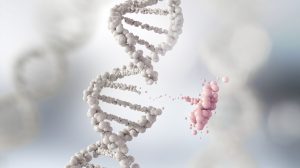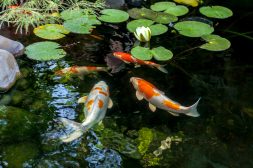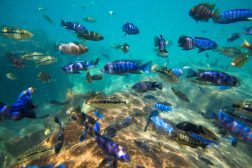scallop
1. (Science: zoology) Any one of numerous species of marine bivalve mollusks of the genus pecten and allied genera of the family Pectinidae. The shell is usually radially ribbed, and the edge is therefore often undulated in a characteristic manner. The large adductor muscle of some the species is much used as food. One species (vola Jacobaeus) occurs on the coast of Palestine, and its shell was formerly worn by pilgrims as a mark that they had been to the holy land.
Synonym: fan shell. See pecten.
The common edible scallop of the Eastern united states is pecten irradians; the large sea scallop, also used as food, is P. Clontonius, or tenuicostastus.
2. One of series of segments of circles joined at their extremities, forming a border like the edge or surface of a scallop shell.
3. One of the shells of a scallop; also, a dish resembling a scallop shell.
Origin: OF. Escalope a shell, probably of German or Dutch origin, and akin to E. Scale of a fish; cf. D. Schelp shell. See Scale of a fish, and cf. Escalop
Alternative forms: scollop.
Dictionary > Scallop
You will also like...

Control of Growth & Development
Control of Growth & Development tutorials look at how the genetic makeup determines the biological processes on a da..

Human Neurology
Human Neurology deals essentially with the nervous system of humans. It also features the various theories put forward b..

The Conscious & Unconscious Nervous System
This tutorial elaborates on how the nervous system works, particularly at the tissue level of the brain. There are three..

Freshwater Communities & Lentic Waters
Lentic or still water communities can vary greatly in appearance -- from a small temporary puddle to a large lake. The s..

Adaptation Tutorial
Adaptation, in biology and ecology, refers to the process or trait through which organisms or the populations in a habit..

Still Water Animals
Animals living in aquatic habitats have diversified and evolved through time. They eventually occupy ecological niches a..

